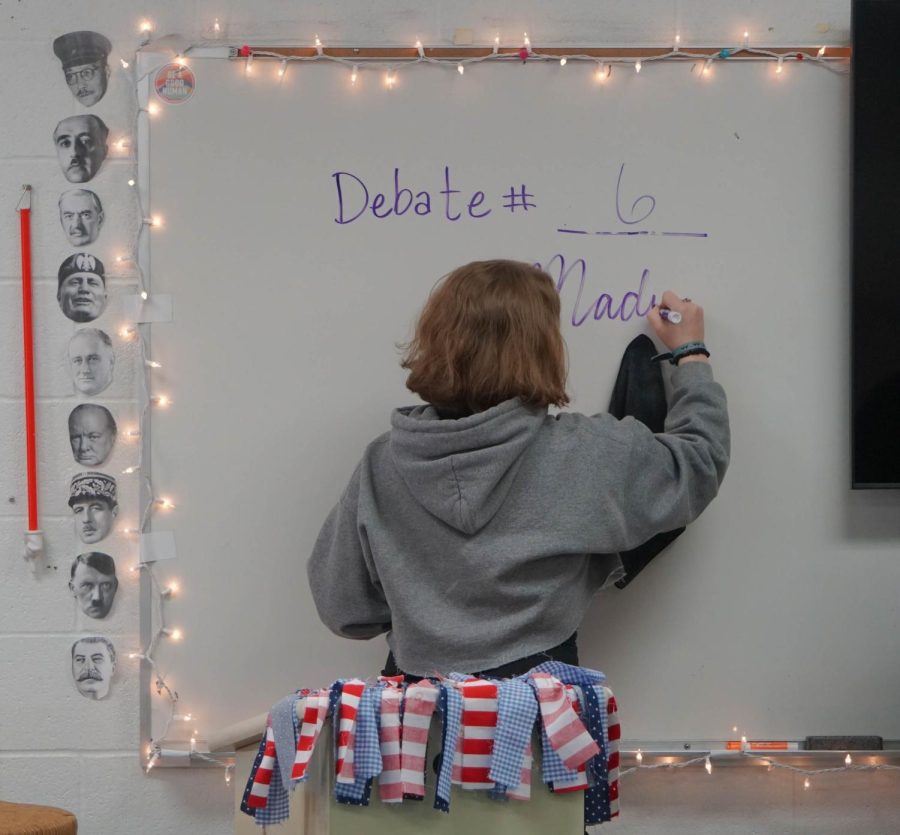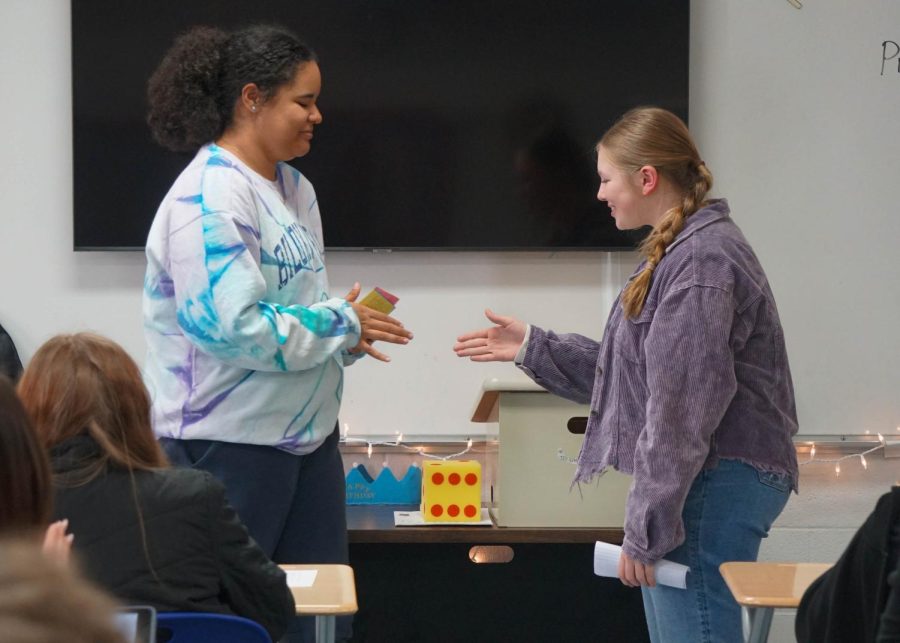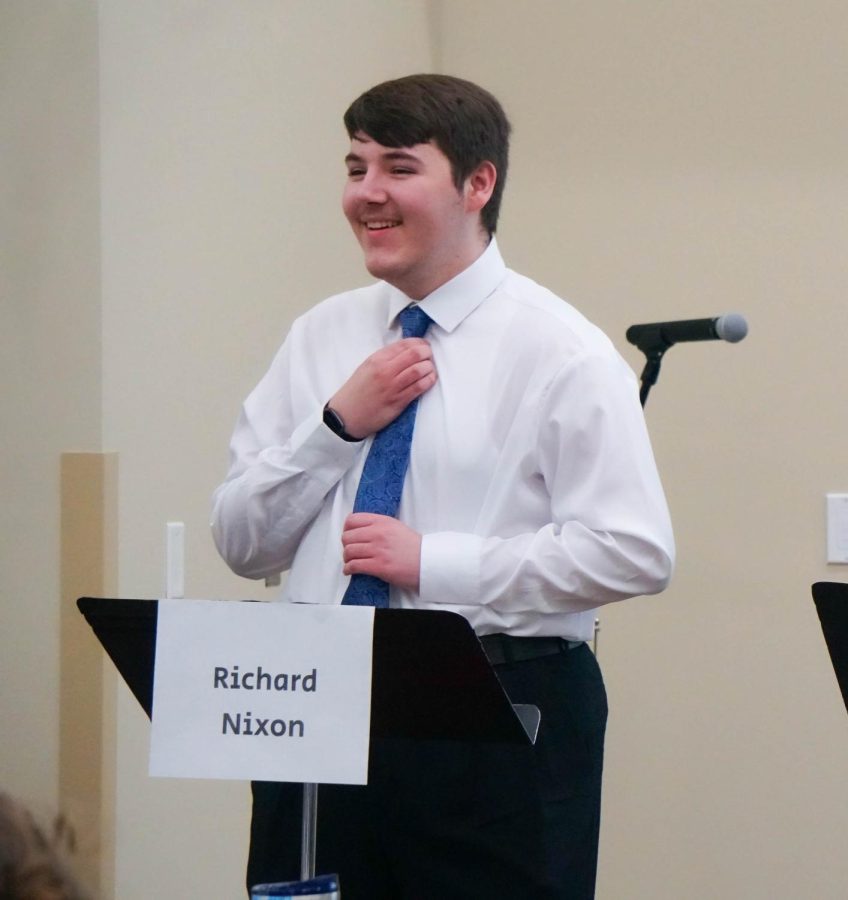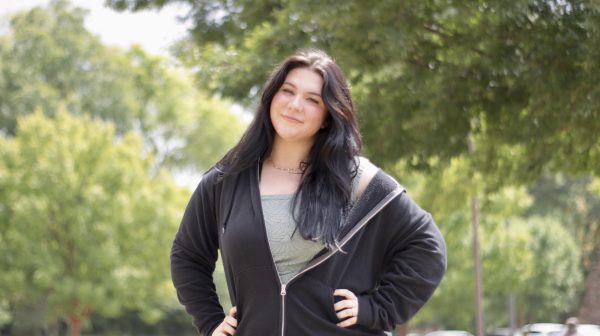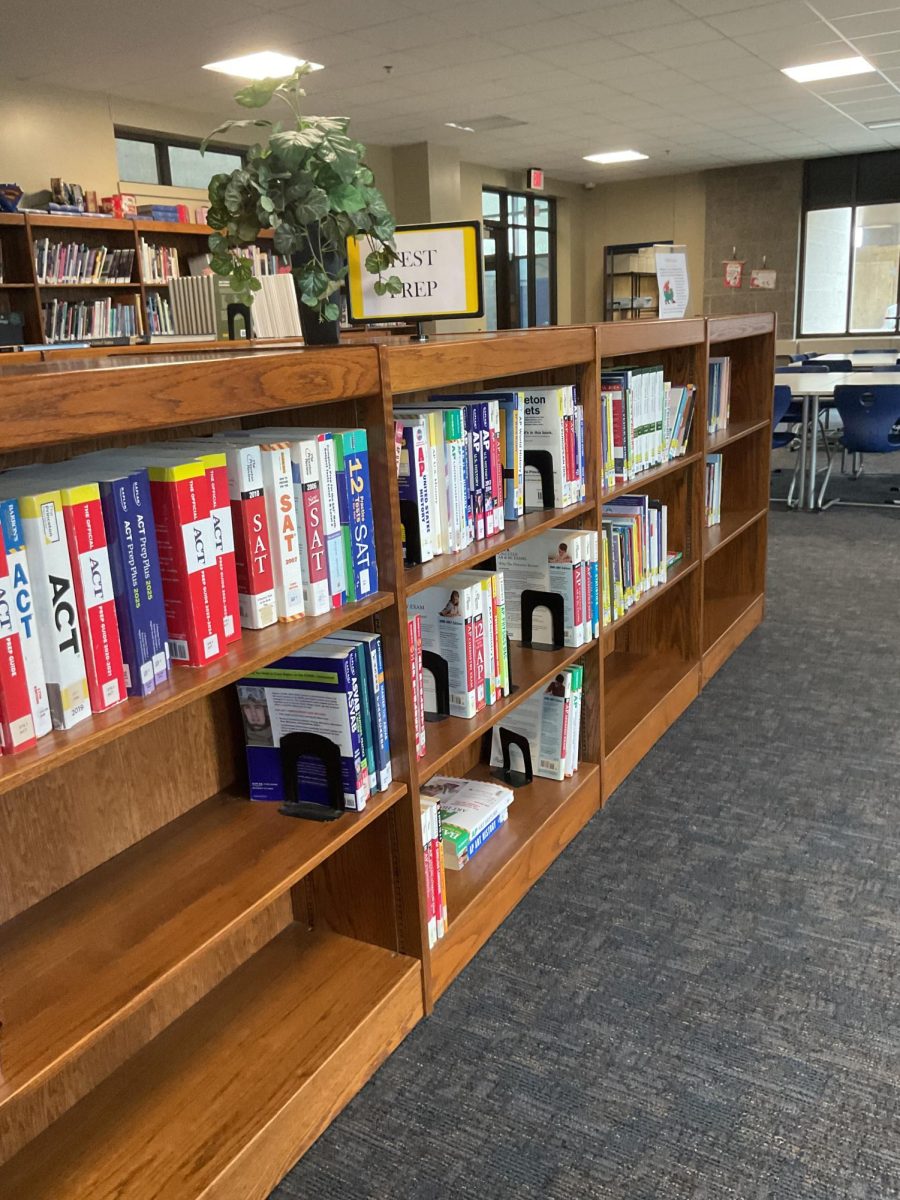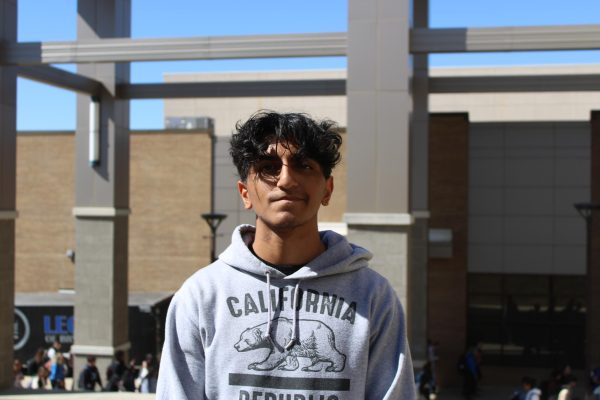March Madness: AP U.S. History Edition
APUSH Students debate as former U.S. presidents in a series inspired by NCAA’s annual basketball tournament, ‘March Madness’.
Junior Mikayla Arbeene writes the name of the fourth U.S. president, James Madiso, on a whiteboard before her debate begins.
April 4, 2023
In the week leading up to spring break, juniors in AP United States History classes took on the roles of former U.S. presidents during an annual research project and debate series known as “Presidential March Madness.” During each match-up, students took turns arguing their assigned president’s stance on one of four topics—foreign policy, domestic policy, economics or the legacy and impact of that leader’s term—in addition to ‘throwing dirt’ at their opponent.
APUSH teachers Tammy Brantley and Amber Leaton came up with the idea of holding debates several years ago with the help of a nationwide Facebook group of APUSH teachers. To them, it was a fun and educational way to fill the space left empty in the curriculum the week prior to spring break.
“We didn’t want to start a new time period, or new material necessarily, so we were looking for something to kind of fill that spot,” Brantley said.
Brantley also explained that it is hard to tell whether the project directly affects student’s AP Exam scores. However, junior Dayne Coker—who debated as former president Bill Clinton—found his research to be exceedingly beneficial to his knowledge of the subject’s content.
“You have to learn about all the presidents you’re gonna [debate] against and when and if you [lose], you have to then listen to what everybody else has to say about their president, so you’re second-hand learning about [them],” Coker said.
Coker’s statement can explain why Leaton has her students memorize every former president in order, in the form of a song. According to Leaton, it aids students in knowing the timeline of the country’s history, which benefits them throughout the debates, as well as the exam.
“Students have told me in the past that they used evidence from the debates to answer questions or as evidence in an essay on the AP Exam, so I know in that way it helps students prepare,” Leaton said.
Though academically enriching, “Presidential March Madness” also served as a more relaxed project for students as they prepared for spring break. Junior Jenna Taylor, who debated and won in her class period as former president Jimmy Carter, explained that it’s important not to treat it too seriously, and encourages future APUSH students to laugh and have fun while the debates take place.
“Be sure to realize that at the end of the day, it’s not the end of the world if you don’t win,” Taylor said.


